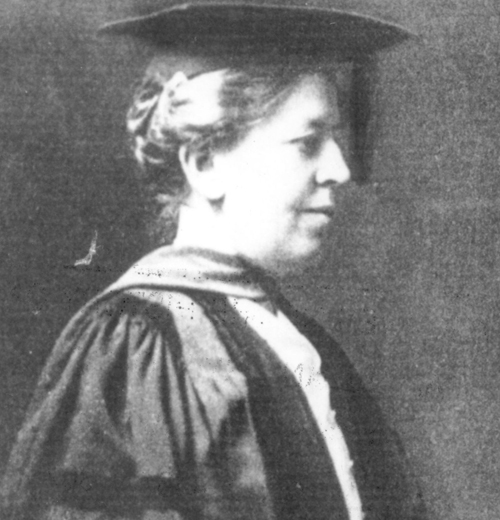#todaysarticle Let's talk about women in science today, more specifically about Mary Whiton Calkins. These are all cited from History of Psychological Approaches to Studying Memory by Roediger & Yamashiro. Let's begin.
In 1895, a pioneering woman named Mary Calkins (1863-1930) developed what is now called the method of paired-associate learning. This is her 

Calkins had studied at Harvard under William James and Hugo Munsterberg, and from 1894 to 1898 she published pioneering experiments with a new method, which she much later (1930) called 'the right-associates method' when she wrote her autobiography.
At the time, she gave it no name, but Thorndike (1905) called it the paired-associate method and the name stuck (Madigan & O’Hara, 1992). Briefly, she showed a series of colours paired with numerals, such as a patch of blue paired with 47.
Later, when subjects were given the colours, they had to respond with the correct number. She showed that bright colours were easier to associate with numbers than duller colours, and she showed that the frequency of presentation greatly affected recall, so did its recency.
Madigan and O’Hara (1992) discussed Calkins findings a hundred years later, and they reported that she reported several important findings that were “discovered” by others much later. Today, paired associates learning is one of the main tools used by memory researchers.
Calkins was a remarkable scholar. Harvard didn't admit women but through the intercession of several people, the president of Harvard, C. Eliot, *permitted* her to take classes so long as she was not registered;Eliot believed that men and women should never be educated together.
Calkins’ paired-associate experiments and findings formed the basis of her doctoral dissertation. The all-male faculty of the Department of Philosophy and Psychology voted unanimously that she should be awarded a PhD for her work.
She had fulfilled all the requirements. Yet the Harvard president and board refused and appeals on her behalf fell on deaf ears. She was denied a PhD from Harvard solely based on her gender.
Despite the discrimination, she produced great research in psychology and on the concept of the self in philosophy. She became the first woman president of the American Psychological Association and of the American Philosophical Association, as a testimony to her abilities.
So, think again, before claiming that there were no women researchers or that men are better at research or anything. Even in high achieving cases, women were not honoured for their research, they were *permitted* by a man. #WomenInScience @OpenAcademics

 Read on Twitter
Read on Twitter


